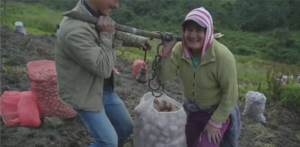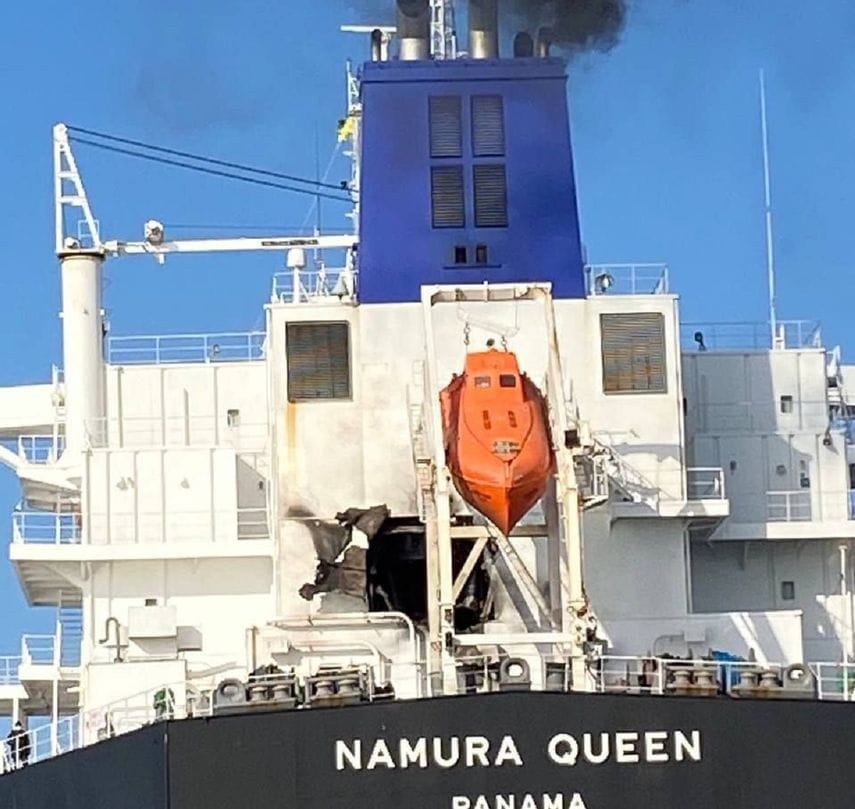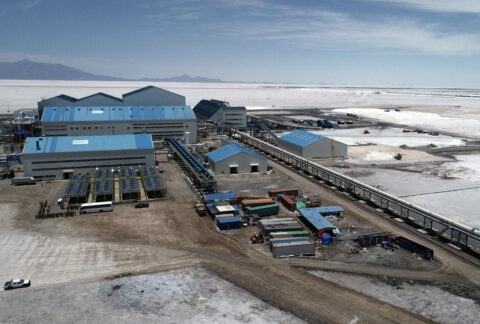Russia’s invasion of Ukraine is affecting grain supplies and global food and fertilizer prices due to port closures and missile strikes on merchant ships in the Black Sea, international media reported.
According to German news site DW, Russian forces have prevented up to 300 ships from leaving the Black Sea, blocking one of the key global trade routes for grain.
“Zero [grains] is currently being exported from the ports of Ukraine — nothing is leaving the country at all,” said Jörg-Simon Immerz, head of grain trading at Germany’s largest agricultural trader BayWa, DW reported.

Both the Black Sea and the adjoining Sea of Azov are key food export routes, and since the invasion of Ukraine began five tankers and cargo ships from Japan, Turkey, Moldova, and Estonia have been struck by Russian missiles, the Argentine daily Cronista reported on March 9.
The Panama Maritime Authority (AMP, in Spanish) said that a dozen Panamanian-flagged vessels are trapped in the Black Sea, while three of them have been hit by Russian missiles.
“Of the three vessels [hit], one sank and the other two remain afloat with material damage,” Noriel Araúz, AMP administrator, said in a La Estrella de Panamá newspaper video on March 16.
“There is no precedent even close to this since World War II,” David M. Beasley, executive director of the World Food Program (WFP), the United Nations (U.N.) agency that feeds 125 million people a day, told The New York Times.
Hurricane of hunger
“A crucial portion of the world’s wheat, corn, and barley is trapped in Russia and Ukraine because of the war, while an even larger portion of the world’s fertilizers is stuck in Russia and Belarus. The result is global food and fertilizer prices are soaring,” The New York Times reported.
Farmers from Texas to Brazil are cutting back on fertilizer, threatening the size of the next harvests; across the globe the result will be reflected in higher costs at the supermarket, the newspaper added.
Ukraine and Russia account for more than half of the global supply of sunflower oil and about 30 percent of the world’s wheat, and Ukraine provides more than half of the supply of that grain to the WFP, the world’s largest humanitarian agency.
“We must do everything possible to avoid a hurricane of hunger and the collapse of the global food system,” U.N. Secretary-General António Guterres said on March 14. “The conflict goes beyond the zone of confrontation; it is an assault on the poorest countries.”
“It’s not a question of whether we are moving into a global food crisis — it’s how large the crisis will be,” Svei Tore Holsether, chief executive of Yara International, a Norwegian fertilizer producer operating in more than 60 countries, told the BBC.
Effects in Colombia
Russia’s invasion of Ukraine has had devastating effects. Latin America is no exception, says Voice of America (VOA) in a video. The arrival in Colombia of some agrochemical supplies from Ukraine affected the costs of basic food products, VOA says.
“If today’s conditions continue three, four months from now, the production costs of Colombian farmers will suffer. This may lead to a reduction in the use of fertilizers and […] lower sowings,” Jorge Bedoya, president of the Colombian Farmers Society, told VOA.
According to Colombia’s Ministry of Finance, the products that could suffer the greatest shortages are vegetables, potatoes, rice, sugar cane, and corn, VOA reported. Today’s production chains are global, and no country can survive on its own, the Colombian Technological University of Bolívar, said on its website.
International food prices could rise another 22 percent if the global trade disruption caused by Russia’s invasion of Ukraine is prolonged, projected the U.N. Food and Agriculture Organization. Global fertilizer prices could also rise as much as 13 percent.









